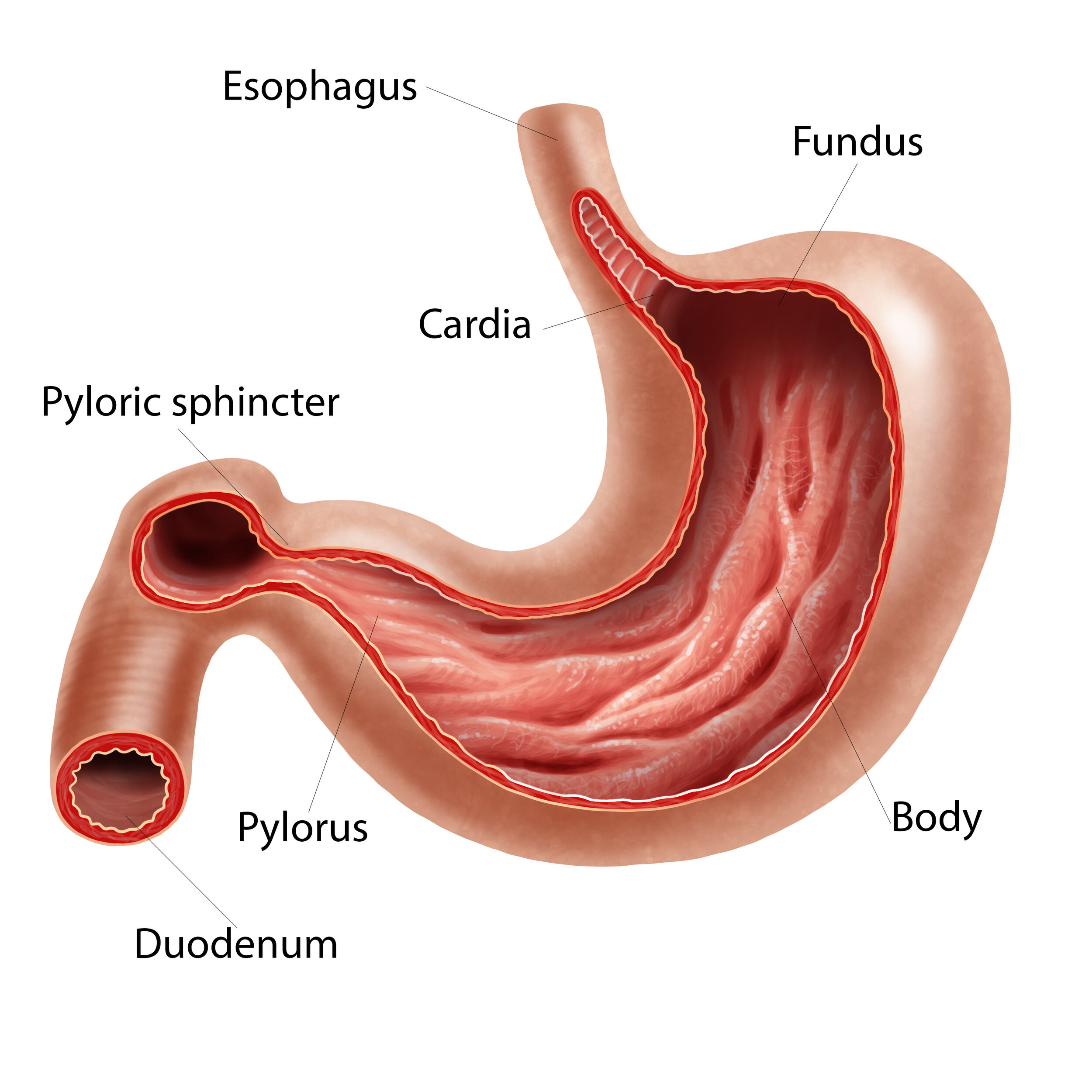Does your dog puke bile in the mornings?
there’s a name for that
If your dog regularly brings up yellow coloured fluid in the early hours but then happily eats breakfast and gets on with her day, she might just have something called bilious vomiting syndrome (BVS).
What is bilious vomiting syndrome?
BVS is characterised by vomiting bile in the early morning.
It’s thought that during the night, fluid from the duodenum refluxes through the pyloric sphincter up into the stomach. This fluid contains bile, which causes irritation of the mucosal lining of the stomach and triggers vomiting. It’s sometimes called bile reflux in people.
Lots of people are familiar with acid reflux, which is when stomach fluid refluxes through the lower oesophageal sphincter up into the the oesophagus. Stomach fluid causes irritation of the mucosal lining of the oesophagus and triggers pain (heart burn). BVS is the same principle, just one sphincter lower.
Bile is a yellow-green fluid made in the liver and stored in the gallbladder. It gets released into the duodenum when we eat, where is helps break down fat into fatty acids, which can be absorbed into the body.
It’s often mistakenly called vile. While you can vomit vile bile, you can’t just vomit vile (that’s a description, not a thing)!
What are the signs of bilious vomiting syndrome?
The signs are early morning:
vomiting (bile stained fluid)
nausea (eg lip smacking, drooling)
temporary reduced appetite
In most cases, the signs rapidly resolve with a little time or having breakfast.
It does seem to be more common in younger, otherwise completely healthy dogs than older ones.
How is bilious vomiting syndrome diagnosed?
BVS is generally diagnosed based on:
a history of regular/chronic morning vomiting
a normal physical examination
a lack of evidence of other causes
To rule out other causes we may perform diagnostic tests (eg blood testing and abdominal ultrasound).
What is the treatment for bilious vomiting syndrome?
There are two main therapies for BVS:
dietary – feeding dinner later, feeding a snack before bed or feeding a food that stays in the stomach longer (eg protein) to reduce the time the stomach is empty overnight
medication – we may try medications that help move things along the gut (eg a prokinetic such as metoclopromide) or medications that protect the stomach lining
We usually start with simple dietary changes first.




